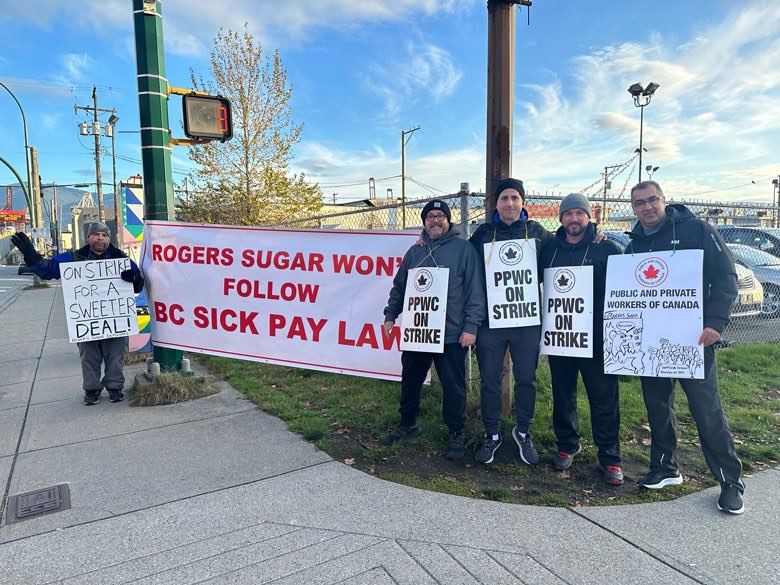Negotiations between Rogers sugar plant workers and Lantic Inc. have broken down, says Adrian Soldera, the president of Public and Private Workers of Canada Local 8. Employees of the sugar refinery plant have been out of work since September 28, after the holding company of Lantic Inc. made a company request to change the workweek and introduce 12-hour shifts for some workers, in hopes of running the refinery seven days a week.
“Unfortunately there are no further talks planned. We did have a day and a half of mediated talks last week which did not result in a collective agreement. So right now, there is nothing further planned,” Soldera explained in an interview with Stephen Quinn on CBC.
“Currently our members work Monday to Friday, 8-hour shifts; [the factory is running] 24 hours a day but it's three shifts a day.”
On November 24, The Canadian Press reported Rogers Sugar Inc. has brought in the British Columbia Labour Relations Board as a mediator to pressure the union to capitulate to the company's demands, but the workers have kept firm on their conditions to end the strike. Soldera explained, “The mediator certainly heard both sides, but we could not make any ground”.
“The company is maintaining that due to market demand, they feel they need increased production and they would like to introduce a 24/7, 365 [day] operation and mandatory 12-hour shifting.” Soldera has expressed that these demands would affect “a lot of young families [...] and obviously this does not look good for maintaining that work-life balance that they currently have.”

Rogers Sugar Inc.'s claims of an increase in demand are more than dubious. In fact, production in the Canadian market has remained relatively stable for decades, simply adapting to the growing population. According to the Canadian Sugar Institute's own figures—an organization of lobbyists paid by the two Canadian monopolists that control almost 100% of the market, Red Path and Rogers—per-capita sugar consumption is steadily declining.
It may well be that it's the appeal of the U.S. market that's driving Rogers Sugar Inc. While food prices there are generally lower, in the case of sugar, the opposite is true. According to a January article by the Globe and Mail, Canadian manufacturers are salivating over this profit opportunity.
The massive Vancouver refinery is now barely kept running by a few dozen managers and non-union staff, which some union members say are working 14 to 16-hour shifts. Additionally, as reported by The Tyee, it seems that because an engineer must be present on the premises while the factory is running, one engineer has not been seen exiting the facility since the onset of the strike. According to union members, camp beds have been brought into the building by managers and employees stuck in the factory seem to be living off of food deliveries.
The workers have gone without paycheques throughout the entirety of the strike and are eager to get back to work, says Soldera, but Rogers Sugar Inc. and the union are firm in their goals, seemingly locked in a stand-off until one them budges on their demands. “We are maintaining that we're certainly open to going back to the [negotiating] table [...] Without this continuous operation that the company is proposing, we feel that we can get a deal done quite quickly.” Continuing, “we weren't expecting this to go on this long. Our members have been without a contract since February 28”.


